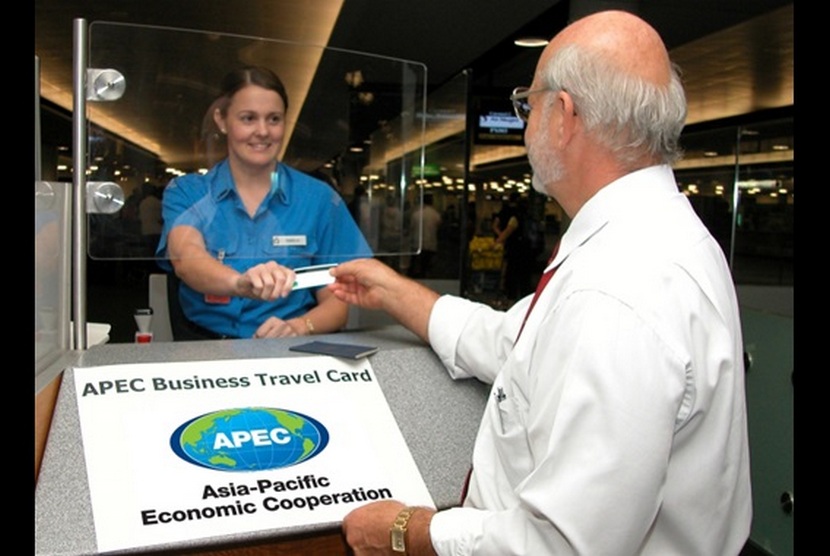REPUBLIKA.CO.ID, BEIJING -- The lifespan of the APEC Business Travel Card (ABTC) that expedites travel and border entry between all 21 APEC member economies has received in-principle agreement to increase in validity from three to five years. The agreement aims to further improve business conditions and facilitate the mobility of businesspeople across the Asia-Pacific.
“APEC economies are making it easier for businesspeople to deal with the loss or exchange of their ABTC or passport and improving the application of emerging technologies like advanced passenger information and automated border control systems,” said APEC Business Mobility Group Convenor from Australia, Kerryn Vine-Camp, in the press release, Thursday, November 13. “The bottom line is we want to streamline barriers to business mobility as much as possible, while working with the private sector to better understand where the areas of greatest need lie.”
The ABTC offers businesspeople three-year, short-stay multiple entry to participating member economies and express lane access at key immigration checkpoints in APEC member economy airports. The APEC Business Mobility Group, which administers the ABTC scheme, looks forward to progressing extension discussions towards implementation of the agreement.
The in-principle agreement is another major boost to the scheme which rounded out participation in the region with the full accession of Russia last year, followed by Canada and the United States’ opening of applications to their citizens for the first time in May and June 2014, respectively.
The ABTC reduces the cost of cardholders’ business travel between APEC economies by 38 per cent, according to APEC Policy Support Unit research. The card was specifically found to cut application fees by 27.8 percent, application time costs by 43.3 percent and immigration processing time costs by 52.4 percent.
The ABTC was launched by APEC economies in 1997. The number of active users as at mid-2014 increased 20 percent to more than 164,000 compared to around 137,000 at mid-2013.
“The expansion of the ABTC is very significant,” said Mika Takahashi, Deputy General Manager of Mitsubishi Corporation’s Global Relations Department and lead representative of the APEC Business Advisory Council on business mobility issues. “The decision will not only make it easier for cardholders to do business in the region over a longer period of time, it also draws attention to a new world of opportunities for strengthening people-to-people connectivity.”


